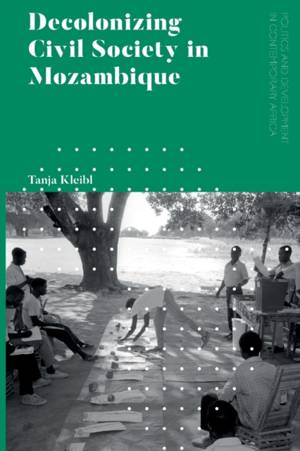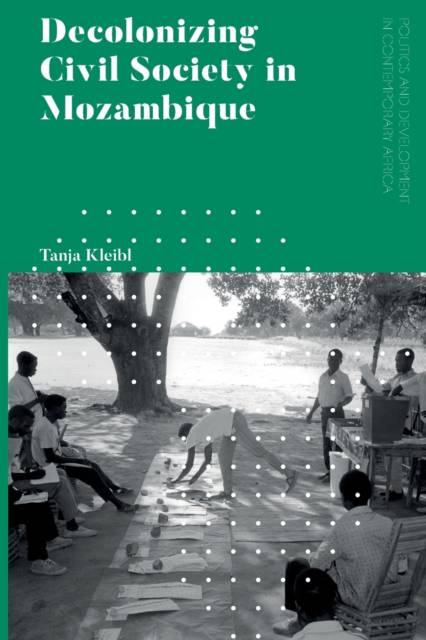
- Retrait gratuit dans votre magasin Club
- 7.000.000 titres dans notre catalogue
- Payer en toute sécurité
- Toujours un magasin près de chez vous
- Retrait gratuit dans votre magasin Club
- 7.000.0000 titres dans notre catalogue
- Payer en toute sécurité
- Toujours un magasin près de chez vous
67,95 €
+ 135 points
Format
Description
By demonstrating that Western conceptions of 'civil society' have provided the framework for interpreting societies in the Global South, Decolonizing Civil Society in Mozambique argues that it is only through a critical deconstruction of these concepts that we can start to re-balance global power relationships, both in academic discourse and in development practices.
Examining the exclusionary discourses framing the support for Western-type NGOs in the development discourse - often to the exclusion of local social actors - this book dissects mainstream contemporary ideas about 'civil society', and finds a new means by which to identify local forms of social action, often based in traditional structures and spiritual discourses. Outlining new conceptual ideas for an alternative framing of Mozambique's 'civil society', Kleibl proposes a series of fresh theoretical issues and questions alongside empirical research, moving towards a series of new policy and practice arguments for rethinking and decolonizing civil society in the Global South.Spécifications
Parties prenantes
- Auteur(s) :
- Editeur:
Contenu
- Nombre de pages :
- 208
- Langue:
- Anglais
- Collection :
Caractéristiques
- EAN:
- 9781786999351
- Date de parution :
- 23-03-23
- Format:
- Livre broché
- Format numérique:
- Trade paperback (VS)
- Dimensions :
- 156 mm x 234 mm
- Poids :
- 299 g

Les avis
Nous publions uniquement les avis qui respectent les conditions requises. Consultez nos conditions pour les avis.






